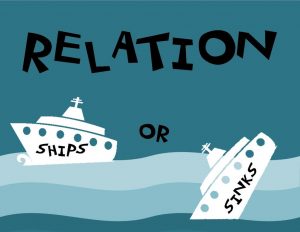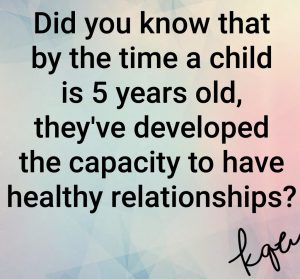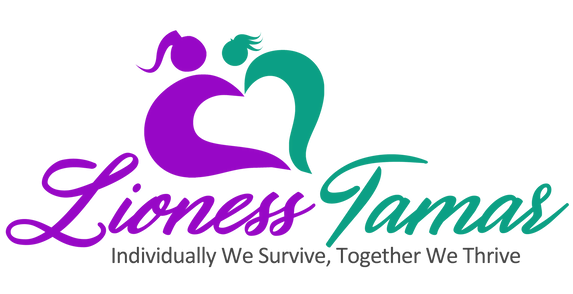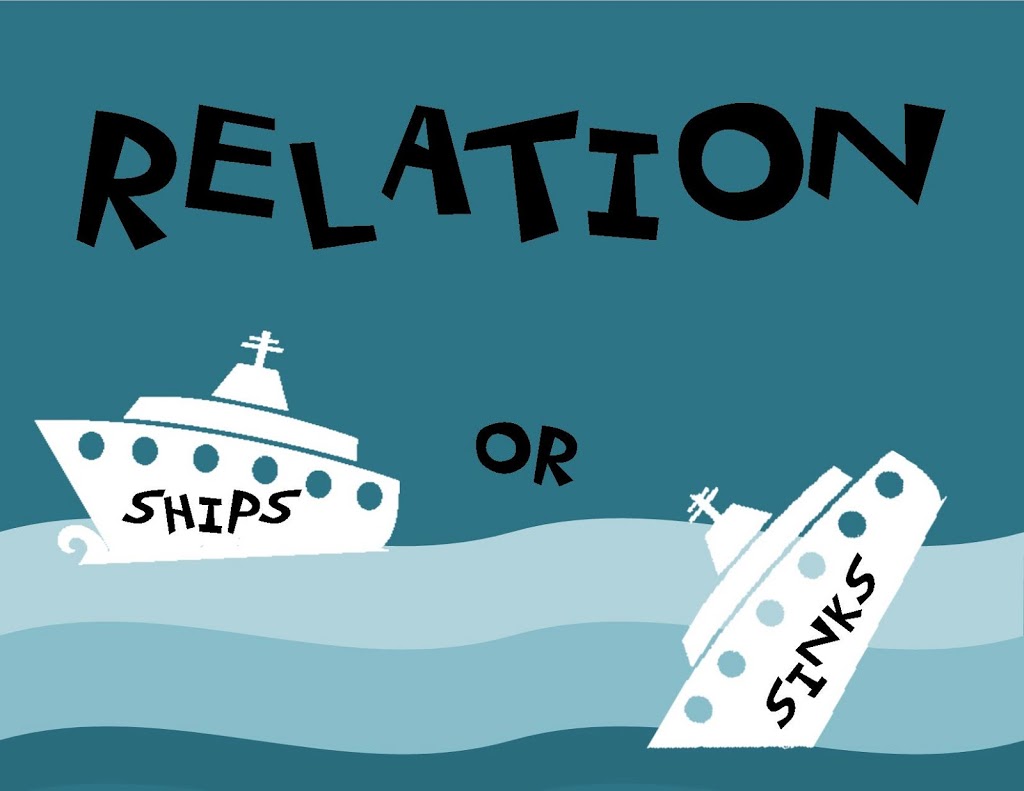What is a healthy relationship?
Whether we’re a survivor of sexual abuse or not, I’m aware this is not the kind of question many of us think about. Yet healthy relationships is vital to the core of each of our existence.
Most of us don’t think about it because we don’t know what a healthy relationship is, what it takes to have one or what it feels like being in one. Some of us wouldn’t even recognise it if it slaps us in the face! Instead we may write if off as something else such as “she’s not my type!”, “he’s not tough enough” or “he’s too boring”.
When it comes to being a survivor of child neglect or any other abuse (sexual, mental/physical or emotional), it’s challenging to create and maintain healthy bonds because of the impact of the trauma we’ve experienced.
In the case of sexual abuse survivors, our relationships can be very toxic. This is not only because of the impact of the trauma but also the actual crime that’s been committed against our bodies without our consent. We wear masks for basic survival in order to cover our deep rooted scars, protect our emotions and our own misplaced truth of being “damaged goods”. The younger we were when we experienced this horrific abuse, the less likely we will grow to having sustainable relationships. This is generally the case for many of us who haven’t broken our silence or received the right healing support.
I say this not to scare anyone off but to highlight some of our key challenges in building healthy relationships and therefore we mustn’t allow ourselves to be in a relationship unless it’s good for us and the other people involve. We mustn’t stay in a relationship out of fear, habit or obligation. We definitely do not need a relationship to validate who we are.
If someone cannot accept responsibility for their behaviour – regardless of how much it hurts us – we must GET RID OF THEM OR LIMIT OUR CONTACT WITH THEM!
As survivors, it’s challenging enough to not naturally doubt or blame ourselves all the time. Therefore it’s very unhealthy for us to be around someone that will put the blame on us simply because they know we’re likely to take it.
You see, I didn’t think I could be my complete and true self in a relationship that honours and respect who I am and what I’ve been through; so I often accepted whatever I got out of my relationships, and even used it to determine what I deserved – creating further limiting beliefs about who I am.
But what I’ve found in my relationships with my husband and child as well as in my research, is that once we know what a healthy relationship is and what it should look and feel like, we’ll find it’s not hard to experience it in different forms of relationships; such as romantic, family, friendships, self, business, etc). And the benefits are so fulfilling too.
For the purpose of this blog, I’ll mainly focus on the relationships between parents and children as well as general adult relationships such as friendships and intimate relationships.
Relationship define
 In order to explain what is a healthy relationship, I thought it would be beneficial to start with what is a relationship?
In order to explain what is a healthy relationship, I thought it would be beneficial to start with what is a relationship?
Relationships refer to the ways in which we connect and relate to people in our ships (lives) or the feeling of being connected within ourselves. Many of us have various roles in society such as romantic partner, parent, grandparent, step-parent, child, sibling, aunt, uncle, cousin, friend, employee, business partner, customer and the list goes on.
In each of these roles, we may have commitments and responsibilities to fulfil. We may also enjoy lots of benefits from fulfilling these roles. Therefore the way we relate to the people involved in these roles could impact on how successful we feel carrying out these roles and thus impacting on our overall self-esteem. The impact of one relationship in a certain area of our life can impact on other areas, depending on how much value we place on it. For example:
A big fall out between you and someone close to you such as your partner or parent can impact on how you are at work or amongst friends. Whereas you maybe able to more easier shrug off a similar fall out with a friend you don’t see often.
A Relationship is a living thing that needs to be nurtured and nourished. If we want to keep it healthy, we can’t just sit back and wait for the good times to roll in – instead we have to actively seek things that will make our relationships better and create more happy memories.
Why are healthy relationships important:
We all have a natural need to want to connect and build relationships with others. It’s one of the things that makes us human beings. Healthy relationships make us feel really good inside which create a more positive mindset and motivate us to achieve more. Overall, we live happier, healthier and longer lives.
Benefits of a healthy relationship
Those involve in a healthy relationship experience love, support and encouragement from each other. They also benefit from:
- Listening to each other
- Talking openly to each other without feeling judged
- Respect and trust each other
- Happy to make time for each other consistently
- Do things togather and practice teamwork,
- and remembers things about each other’s lives
Where do healthy relationships start? They start with the parent and child relationship
 From being in the womb to around 19 years of age, we go through a number of development stages learning about ourselves and the world around us. At each stage we’re learning something important from our parents and other family members, friends, teachers, role models and society at large.
From being in the womb to around 19 years of age, we go through a number of development stages learning about ourselves and the world around us. At each stage we’re learning something important from our parents and other family members, friends, teachers, role models and society at large.
If a child gets their fundamental needs fulfilled at the different key stages up to 5 years old, it’s likely they would’ve developed the key elements to having healthy and sustainable relationships in their adulthood.
But if they didn’t – for example, if they faced any form of abuse or neglect during these earlier years – they develop low self-esteem, fear and mistrust amongst other things. This can affect the way they see themselves and relate to people around them for the rest of their lives.
Stages of child development
To further understand the importance of the different stages of early child development, it may help to highlight the first 5 stages our children goes through in life and how it helps to shape their mindset:
- STAGE 1: up to 2 years old, we’re learning to trust the closest people around us especially our mothers. If we experience fear, we’ll develop mistrust for the world around us. Some children may even become fearful of doing familiar activities they used to enjoy or you may notice withdrawal or attachment symptoms.
- STAGE 2: between 2 – 4 years old, we’re learning to manage ourselves and our emotions. We’re basically asking if it’s ok to be ‘me’. If we’re allowed to develop ourselves, we develop a good self esteem of who we are and how to cope with small challenges in our lives. If not, we develop low confidence, shame and doubt in ourselves. We may “talk back” to our parents rudely, being defiant and not listen to instructions, blaming others for our wrong doings; stealing, lying and getting in frequent fights or incidents with other children. Both parents are now required to play a crucial part in this stage of our development.
- STAGE 3: between 4 – 5 years old, we’re learning how to use our initiative to problem solve, explore our environment and try out new things. We wonder how things work and if it’s ok to do the things what we want to do. If we’re encouraged, we’ll learn to follow our own interest but if we’re told off for our behaviour, we may develop guilt. Support from the entire family is relevant here.
- STAGE 4, between the ages of 5 – 12 years old, we would’ve developed our own interest and understand that we’re different to everyone else. We’re learning to do things right and question whether we can make it in this world. Recognition from our teachers and peers can make us more hard working whilst too much negative feedback can make us feel inferior and loose motivation. Our neighbours, community and schools tends to have the biggest impact on us at this stage.
- STAGE 5: between the ages of 13 – 19 yrs old, we’re learning about our identity and role within society. We learn that each of us have different roles such as friends, sibling, students, children and citizen. This is the time frame when most of us experience an identity crisis. If we’re supported and guided to explore our identity, we can find ourselves and place in society. However if we’re forced to conform to others’ beliefs, we could experience an identity crisis and a sense of feeling lost. Our friends and role models impact us mostly at this stage.
Understanding the psychology behind our children’s development can enable us to encourage and support their needs and as such build them up to having healthy relationships of their own. As parents, it’s our responsibility to try and understand our children’s needs on this deeper level, otherwise we may end up neglecting their them (unintentionally) or punishing them for their natural tendencies such as exploring their environment or being inquisitive.
By doing so, we end up reinforcing negative behaviours instead of breaking the cycle to create positive behaviours. Without knowing it, we’re also reducing the likelihood of our children confiding in us to tell us their problems such as if someone else is hurting them.
It’s vital for us parents to create healthy relationships with our children by supporting and encouraging their needs. This creates the basis for healthy relationships in adulthood.
Key elements of healthy adult relationships:
 Once we learn the basic foundation of healthy relationships as children, we naturally develop certain guided principles that enable stronger bonds in adult relationships such as intimate and friendships. These key elements include:
Once we learn the basic foundation of healthy relationships as children, we naturally develop certain guided principles that enable stronger bonds in adult relationships such as intimate and friendships. These key elements include:
- A desire to want to be in a relationship because we know it’s good for us and the other parties involved. This means we wouldn’t stay in a relationship out of fear, comfort, neediness, habit, obligation or sense of responsibility.
- We feel affirmed, encouraged and supported, making us want to be even better than we are. Our strengths are recognised and our weaknesses are accepted, not criticised.
- Our voice, needs and views are acknowledged in the things we do or share togather.
- We’re free to be ourselves without the expectation to adapt to what someone else wants us to be.
- We pay attention to the other parties’ needs and support them – in particularly, emotionally and mentally. Even after the initial excitement wears off, we want to invest time and effort into keeping the relationship alive.
- We communicate consistently, openly and respectfully with each other about important and general things as well as problem solving.
It’s much easier when we experience a healthy childhood for us to grow up having healthy relationships and therefore become more successful.
Children that experience trauma such as neglect or abuse resulting in fear, lost, confusion and mistrust- are more likely to choose/attract people in their lives that recreate more toxic relationships., unless the cycle is broken and healing takes place.
As adult survivors, we must be mindful of the people we’re getting into relationships with to ensure we’re not carrying on the negative principles (some of us) grew up with. It’s always good to include the se four questions below as part of our self-care techniques, asking ourselves:
- What are my own vulnerabilities?
- What common themes exist between me and people who are currently in my life or those that used to be?
- Am I happy with all identified common themes?
- If not, what are I’m I doing to work through and ensure I’m not recreating toxic relationships?
Until we work through these questions, we may not be emotionally ready for relationships. This is meant as a healthy exercise to understand our needs better and should not be used as a self-critique tool to bring us down or make us feel less of ourselves. Survivors like me have the tendencies to be so self critical and blaming ourselves constantly ie it’s our fault, why don’t we learn? Why do I keep picking guys that’s not good for me? Etc.
In summary, childhood abuse and neglect can leads to toxic adult relationships. We should be mindful of the way we allow others to treat us and be aware that we don’t need a relationship to validate who we are.
However it’s natural to want to connect with others and create sustainable relationships. For this to be possible, I recommend that we seek healing support to overcome and break the cycle from the impact of the trauma and crimes against ourselves.
We should also understand how to create healthy relationships and what it feels like. By this point, our boundaries will be firm and we’ll be more likely to experience the right encouragement and support from those we’ve chosen to be in our circle.
This may all seem like hard work but it’s so worth it for us and our families to live healthy lives. And when we start to experience this, we’ll feel so successful and happy inside. That’s when the possibilities will feel endless!
Finally, we mustn’t forget to keep looking after ourselves and our loved ones.
Until next time, your loving and peaceful SiStar✸

